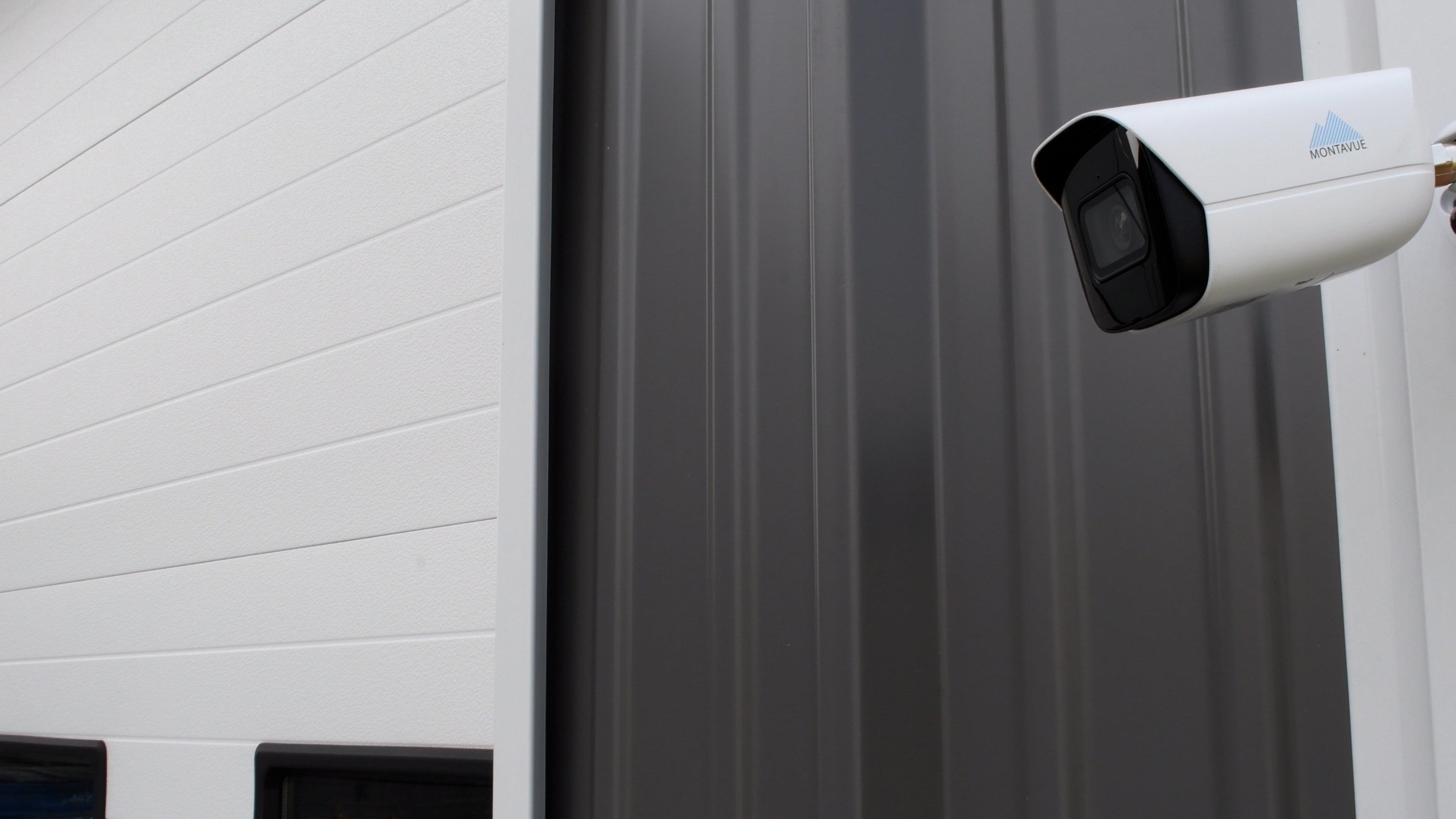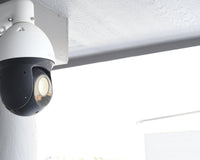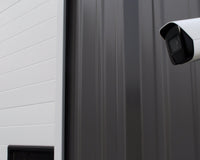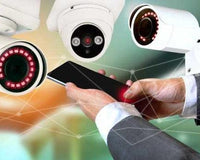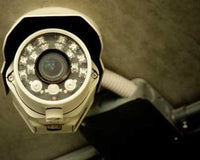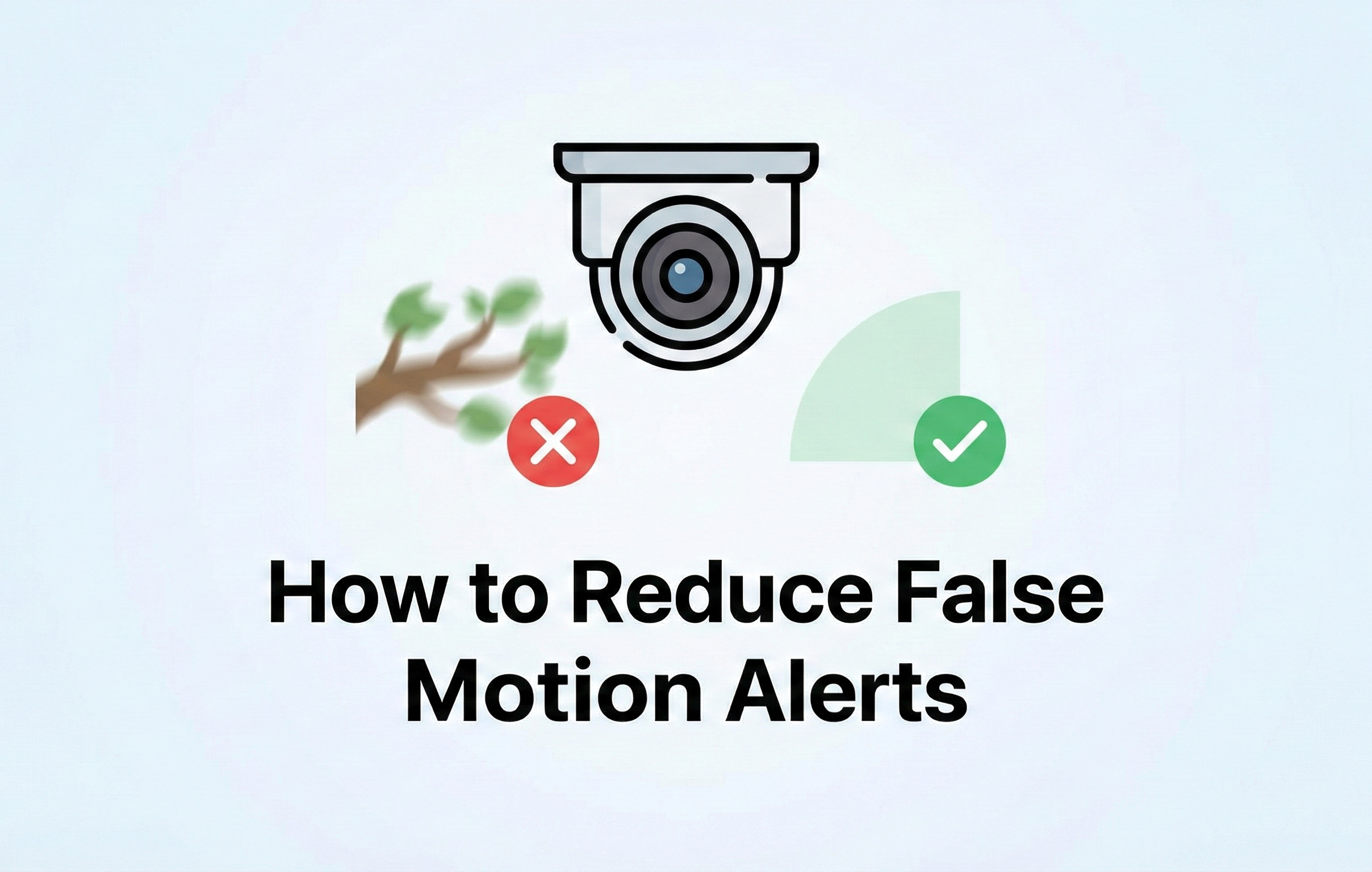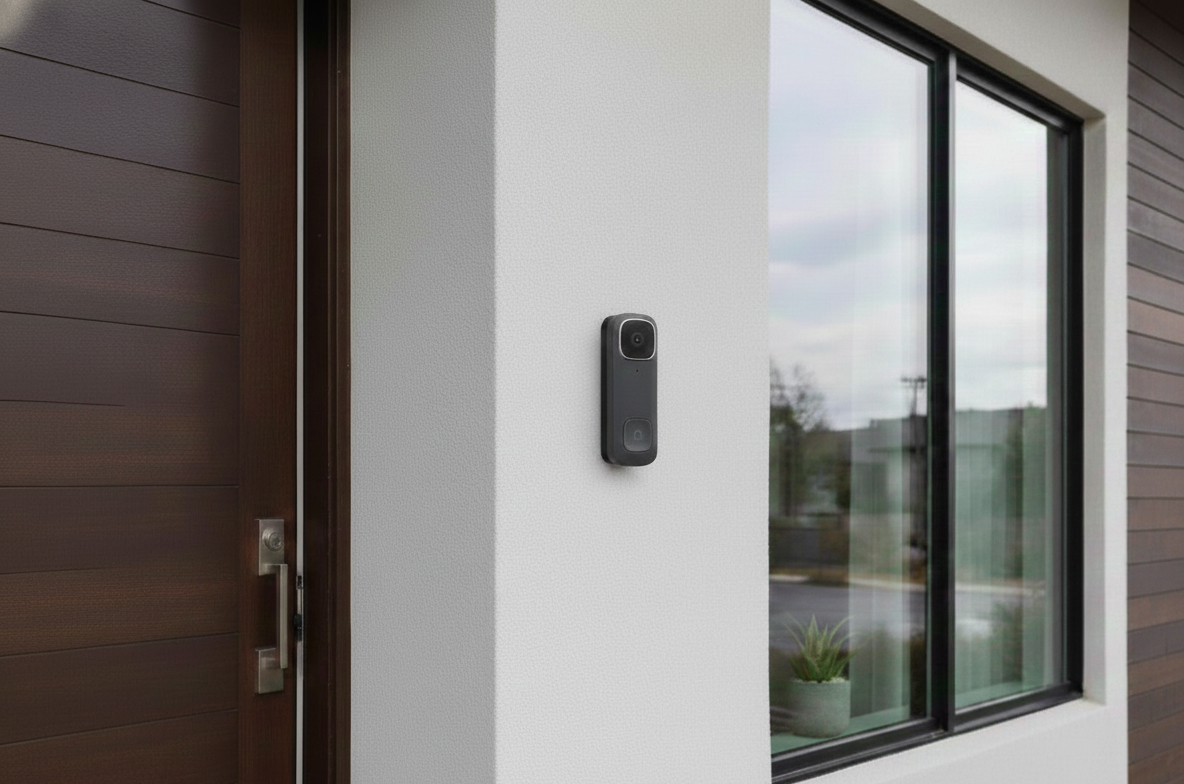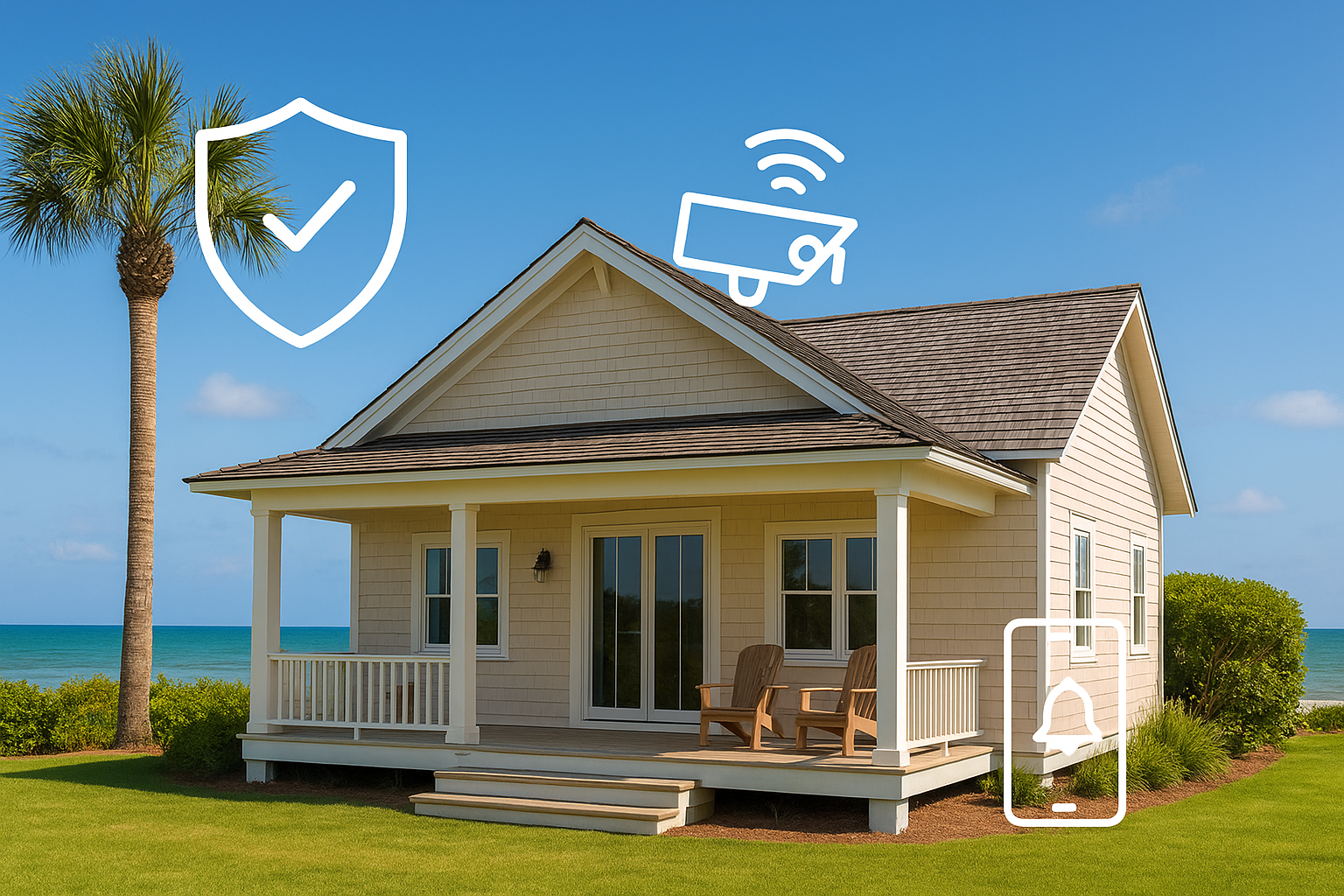Today, there are cameras all around us, and no one can avoid them.
It is either legal or unlawful at various times.
So when it comes to using CCTV in your home laws can be a little different.
So the question is, is it legal to record audio on home security cameras?
It's entirely up to you whether or not you want to record audio and CCTV at home, as the law is far less restricting since it pertains to your property, privacy, and rights.
Audio security cameras may be put in the house for use while you're on vacation so that you can have total confidence.
Read our guide to learn everything you need to know about audio recordings on your home security camera.
Home Security Camera Audio - Can You Record It?
It is your right to do whatever you like on your property, so long as it doesn't violate the law.
This includes video recording with audio with your home CCTV camera.
The main restriction when it comes to audio surveillance at home is that you cannot record someone else's conversation without their knowledge or permission.
This is because most security cameras for domestic use are considered an invasion of privacy, and so the law protects people from having their conversations recorded without their consent.
However, you can record audio with home security systems in a public place, as long as you don't violate any other laws in the process.
For example, you can't use the built-in microphones on your camera to eavesdrop on a conversation that you wouldn't be able to overhear otherwise as this breaks privacy laws.
You also can't use many home security cameras to record audio in a place where people would have a reasonable expectation of privacy, like a bathroom or changing room.
How Do Home Security Cameras Record Sound
As seen in the table below, the majority of CCTV cameras you'd find at home include sound recording.
It's just the more expensive CCTV cameras that aren't part of a complete home security system.
External microphones may be connected to some audio CCTV cameras to better pick up sound from further away, but I wouldn't typically encourage this setup because it's difficult to set up.
In most situations, the built-in microphone on most audio CCTV cameras will be adequate and record sound.
Audio Quality Of Home Security Cameras
The quality of the audio recorded by your home security camera will depend on the quality of the microphone.
As you can see in the table, most audio CCTV cameras have decent microphones that will pick up sound from a distance of around 15 feet.
If you need to record audio from further away than that, you may want to consider getting a camera with an external microphone.
Keep in mind that the quality of the audio will also be affected by any background noise, so if you're trying to record audio in a busy place, it may not be as clear as you'd like.
Tips For Audio Recording on Home CCTV
If you want to use your home security camera to record sound, there are a few things you need to keep in mind.
- Make sure that you're not violating any laws by recording audio without the consent of the people involved.
- Be aware that recording sound may reduce the quality of the video footage.
- Be sure to store the recordings in a safe place where they can't be accessed by unauthorized people.
- Keep in mind that home security cameras are generally not considered to be reliable evidence in court.
How to Tell If Security Cameras Have Audio
It's difficult to tell from a security camera's exterior whether it can record sound, but there are several methods to discover.
Research
The most obvious method to determine whether a camera can capture audio is to research the item online.
The product's technical specifications page should clearly indicate if it records audio. It may even be stated as a feature on the product's technical specifications page.
Look For A Small Hole
If the camera you're inspecting has a small hole on its front or back side, it's likely that the device contains a microphone.
However, not all IP cameras with microphones have this tiny hole. There for, not all security cameras record audio as a result.
Check The Manual
Consulting the product's manual is another way to determine if a security camera can record sound.
If you can't find the manual, look for online versions.
In some cases, the answer may not be explicitly stated in the manual.
You'll likely have to read through the entire document to see if there are any clues that suggest audio recording is a possibility.
Check The Camera's Settings Page
Once you have the camera installed and connected to the internet, you can check its settings page to see if there are any options related to the audio recording.
For example, some security cameras will have an "audio" or "sound" option in their settings menu.
If you don't see anything related to audio, it's likely that the camera doesn't have that feature.
Ask Customer Service
If you're still unsure whether the security camera can record sound, your last resort is to contact the customer service department of the company that manufactured the device.
They should be able to give you a definite answer.
Why Don’t Some Home Security Cameras Record Sounds
There aren't a lot of home security cameras with the ability to record sound, and they have several good reasons for not including it.
Legality
The first is the obvious legality surrounding audio recording. Although the maker itself would not be considered a defendant in a lawsuit, if a case becomes public and their name and product are all over the news, it may not reflect well on them.
Given how the privacy laws around recording sound differ so much across the world, I'm sure most firms choose not to keep track of it for this reason alone.
It might severely restrict the number of consumers that would buy their product given how varied privacy audio recording laws are all around the world.
Cost
The other big reason is cost. Just like 4K video wasn't popularized until cheaper technology made it possible to store and view the footage, the same goes for audio.
It requires a lot more data storage than video and thus would be more expensive for manufacturers to include in CCTV systems.
Microphones are also more expensive than cameras, so that's another factor to consider.
Storage
Double-check the storage capacity of your current cctv system before purchasing a new one. More space will be required, too.
Although audio recordings don't take up as much storage space as video recordings, especially those at high resolutions, they do all use up disk space.
The need for more storage also affects price, making the whole system less affordable.
How to Add Sound Recording to a Home Security Camera
Despite the fact that a home security camera may have the ability to record sound, it may not include a built-in microphone for doing so.
If a particular camera has one, it's likely to have one, but this isn't always the case.
If you already have A CCTV system that supports audio recording but lacks an onboard microphone, external microphone kits are available; however, they can be difficult to set up and install.
Not to mention the extra cables you'll need to find a place for outdoor cameras. This is tough enough already, and if your camera is outside keeping an eye on your back garden, it's virtually impossible.
If you're that serious about sound recording, I'd suggest selling your present camera and investing in a new one with a built-in microphone.
In the long run, it will save you a lot of time and aggravation.
What Are The Penalties For Recording Audio Without Consent?
The penalties for recording audio without consent vary from country to country, but in general, the punishment is more severe if you're caught recording audio without the other person's knowledge.
In some countries, like the United States, it is a federal offence to record audio without consent in public.
The penalties can include a fine of up to $500 or up to five years in prison with some audio surveillance laws.
Federal laws are different in each country, so it's important to check the specific laws in your area before recording anything.
In other countries, like the UK, the penalties are less severe, but you can still be fined up to £2500 if you're caught recording audio without consent.
Under the data protection act, it is also illegal to record audio without the other person's knowledge in public.
So, as you can see, the penalties for recording audio without consent vary from country to country, but in general, it is an offence that can lead to a fine or even imprisonment.
Do You Need A CCTV Sign Showing At Home?
In public places, there will always be a sign indicating that CCTV is in operation.
The same goes for workplaces and other buildings where security cameras are present.
However, at home, there is no legal requirement to have a sign warning people that they are being recorded on camera.
If you're worried about people seeing the cameras and knowing that they are being recorded, you can always buy a dummy camera or put the real cameras out of sight.
Conclusion
Operating a home security camera can be a great way to protect your property and loved ones.
However, it's important to be aware of the laws surrounding audio recording before you start using your camera.
Be sure to get consent from anyone who might be recorded, and be aware of places where people would have a reasonable expectation of privacy.
If you're not sure whether or not your camera has a microphone, you can always contact the manufacturer and ask.
Following these tips will help you stay within the bounds of the law and avoid any legal penalties.

